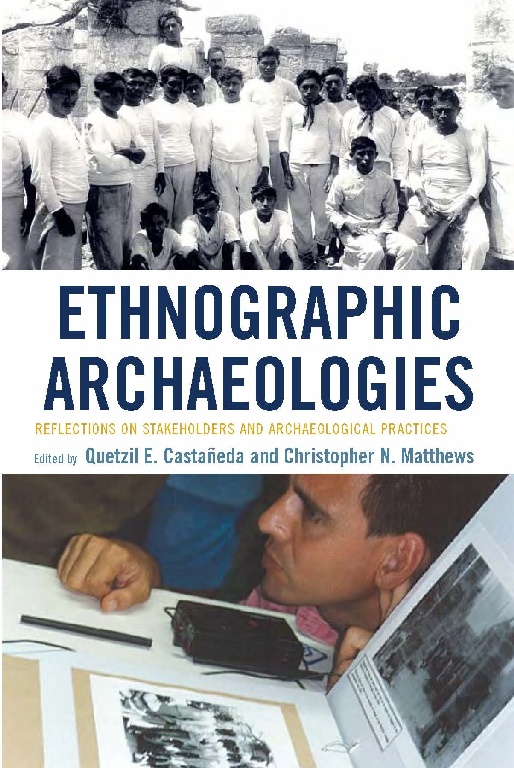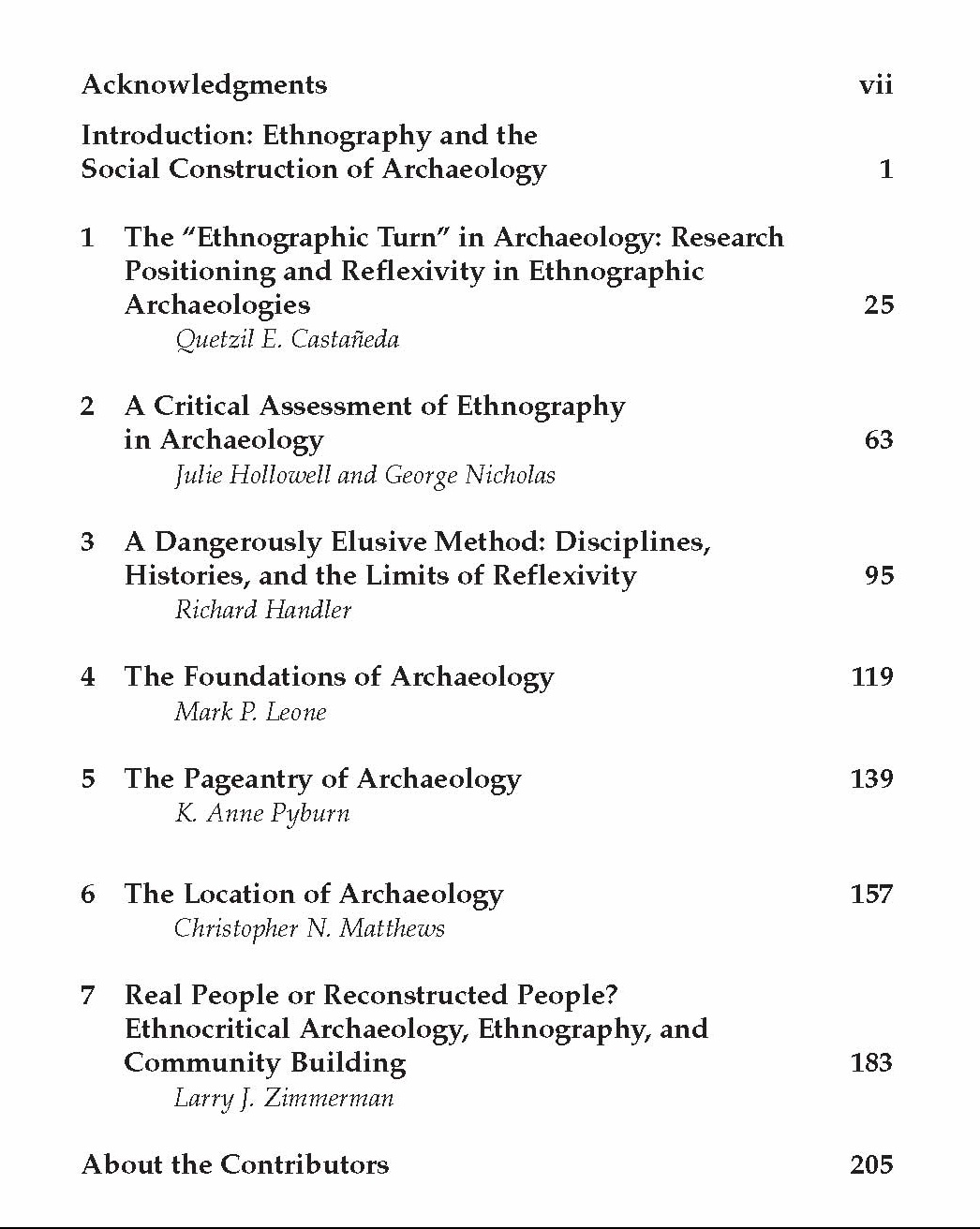|
Ethnographic Archaeologies may be ordered online at AltaMira Press

On the significance of this book
“This important collection expands the boundaries of archaeology and charts out an emerging and dynamic field. The eminent contributors, in their consistently powerful and thought-provoking chapters, situate archaeological practice in the ethnographic present, forcing us to reflect on our responsibilities toward the various communities associated with the archaeological past and with archaeology as a discipline. In these pages, archaeology is reconnected with ethnography in a critical, reflexive, and ethically sensitive manner.”
—Yannis Hamilakis, University of Southampton, UK; author of The Nation and its Ruins: Antiquity, Archaeology and National Imagination in Greece (2007).
Ethnographic archaeology has emerged as a form of inquiry into archaeological dilemmas that arise as scholars question older, more positivistic paradigms. In Ethnographic Archaeologies, the term refers to diverse methods, objectives, and rationalities. The contributors to this volume, for example, understand ethnographic archaeology variously as a means of critical engagement with heritage stakeholders, as the basis of public policy debates, as a critical archaeological study of ethnic groups, as the study of what archaeology actually does (as opposed to what researchers often think it is doing) in excavations and surveys, and as a foundation for transnational collaborations among archaeologists. What keeps the term “ethnographic archaeology” coherent and relevant is the consensus among practitioners that they are embarking on a new archaeological path by attempting to engage the present directly and fundamentally.
Cover Photo, Top:
The Maya crew during the 1927 excavation of the Temple of Warriors, at Chichén Itzá, with archaeologist Earl Morris in the back center of the group. Photograph by the Carnegie Institution of Washington, used with permission of the Trustees of the Harvard Peabody Museum.
Cover Photo, Bottom:
Ethnographic focus group research with residents of Pisté, Yucatán, using Carnegie photographs of the Maya workers excavating the Temple of the Warriors (August 12, 1998). Photograph by the Field School of Experimental Ethnography, used with permission of the Open School of Ethnography and Anthropology.
Table of Contents
click here or scroll down for table of contents
Editors
Quetzil E. Castañeda is founder and director of the Open School of Ethnography and Anthropology.
Christopher N. Matthews is associate professor of anthropology at Hofstra University.
Contributors
Quetzil E. Castañeda, Richard Handler, Julie Hollowell, Mark P. Leone, Christopher N. Matthews, George Nicholas, K. Anne Pyburn, Larry J. Zimmerman
Bibliographic Citation
Castaņeda, Quetzil E. and Christopher N. Matthews, editors. 2008. Ethnographic Archaeologies: Reflections on Stakeholders and Archaeological Practice. Lanham, MD: AltaMira Press.
ISBN
ISBN-13 978-0-7591-1134-9 cloth and 978-0-7591-1135-6 paper
ISBN-10 0-7591-1134-0 cloth and 0-7591-1135-9 paper
For orders and information please contact the publisher
A Division of Rowman & Littlefield Publishers, Inc.
1-800-462-6420
www.altamirapress.com

|